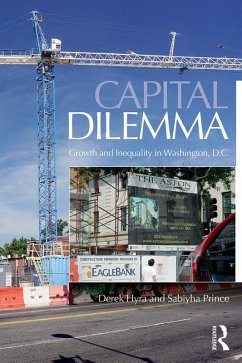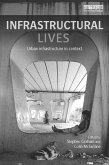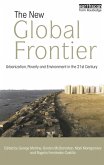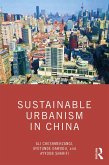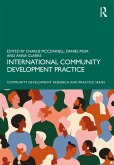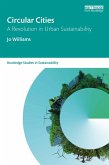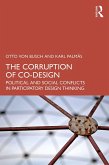Capital Dilemma (eBook, PDF)
Growth and Inequality in Washington, D.C.
Redaktion: Hyra, Derek; Prince, Sabiyha
56,95 €
56,95 €
inkl. MwSt.
Sofort per Download lieferbar

28 °P sammeln
56,95 €
Als Download kaufen

56,95 €
inkl. MwSt.
Sofort per Download lieferbar

28 °P sammeln
Jetzt verschenken
Alle Infos zum eBook verschenken
56,95 €
inkl. MwSt.
Sofort per Download lieferbar
Alle Infos zum eBook verschenken

28 °P sammeln
Capital Dilemma (eBook, PDF)
Growth and Inequality in Washington, D.C.
Redaktion: Hyra, Derek; Prince, Sabiyha
- Format: PDF
- Merkliste
- Auf die Merkliste
- Bewerten Bewerten
- Teilen
- Produkt teilen
- Produkterinnerung
- Produkterinnerung

Bitte loggen Sie sich zunächst in Ihr Kundenkonto ein oder registrieren Sie sich bei
bücher.de, um das eBook-Abo tolino select nutzen zu können.
Hier können Sie sich einloggen
Hier können Sie sich einloggen
Sie sind bereits eingeloggt. Klicken Sie auf 2. tolino select Abo, um fortzufahren.

Bitte loggen Sie sich zunächst in Ihr Kundenkonto ein oder registrieren Sie sich bei bücher.de, um das eBook-Abo tolino select nutzen zu können.
Capital Dilemma: Growth and Inequality in Washington, DC uncovers and explains the dynamics that have influenced the contemporary economic advancement of Washington, DC.
- Geräte: PC
- mit Kopierschutz
- eBook Hilfe
- Größe: 6.5MB
Andere Kunden interessierten sich auch für
![Infrastructural Lives (eBook, PDF) Infrastructural Lives (eBook, PDF)]() Infrastructural Lives (eBook, PDF)62,95 €
Infrastructural Lives (eBook, PDF)62,95 €![Bordered Cities and Divided Societies (eBook, PDF) Bordered Cities and Divided Societies (eBook, PDF)]() Scott A. BollensBordered Cities and Divided Societies (eBook, PDF)39,95 €
Scott A. BollensBordered Cities and Divided Societies (eBook, PDF)39,95 €![The New Global Frontier (eBook, PDF) The New Global Frontier (eBook, PDF)]() The New Global Frontier (eBook, PDF)56,95 €
The New Global Frontier (eBook, PDF)56,95 €![Sustainable Urbanism in China (eBook, PDF) Sustainable Urbanism in China (eBook, PDF)]() Ali CheshmehzangiSustainable Urbanism in China (eBook, PDF)39,95 €
Ali CheshmehzangiSustainable Urbanism in China (eBook, PDF)39,95 €![International Community Development Practice (eBook, PDF) International Community Development Practice (eBook, PDF)]() International Community Development Practice (eBook, PDF)34,95 €
International Community Development Practice (eBook, PDF)34,95 €![Circular Cities (eBook, PDF) Circular Cities (eBook, PDF)]() Jo WilliamsCircular Cities (eBook, PDF)39,95 €
Jo WilliamsCircular Cities (eBook, PDF)39,95 €![The Corruption of Co-Design (eBook, PDF) The Corruption of Co-Design (eBook, PDF)]() Otto Von BuschThe Corruption of Co-Design (eBook, PDF)37,95 €
Otto Von BuschThe Corruption of Co-Design (eBook, PDF)37,95 €-
-
-
Capital Dilemma: Growth and Inequality in Washington, DC uncovers and explains the dynamics that have influenced the contemporary economic advancement of Washington, DC.
Dieser Download kann aus rechtlichen Gründen nur mit Rechnungsadresse in A, B, BG, CY, CZ, D, DK, EW, E, FIN, F, GR, HR, H, IRL, I, LT, L, LR, M, NL, PL, P, R, S, SLO, SK ausgeliefert werden.
Produktdetails
- Produktdetails
- Verlag: Taylor & Francis eBooks
- Seitenzahl: 380
- Erscheinungstermin: 19. November 2015
- Englisch
- ISBN-13: 9781317501145
- Artikelnr.: 44475441
- Verlag: Taylor & Francis eBooks
- Seitenzahl: 380
- Erscheinungstermin: 19. November 2015
- Englisch
- ISBN-13: 9781317501145
- Artikelnr.: 44475441
- Herstellerkennzeichnung Die Herstellerinformationen sind derzeit nicht verfügbar.
Derek Hyra is associate professor in the Department of Public Administration and Policy and director of the Metropolitan Policy Center at American University. His research focuses on processes of neighborhood change, with an emphasis on housing, urban politics, and race. Dr. Hyra is the author of The New Urban Renewal: The Economic Transformation of Harlem and Bronzeville (University of Chicago Press 2008) and recently completed his second book, Making the Gilded Ghetto: Race, Class, and Politics in the Cappuccino City (University of Chicago Press Forthcoming), which investigates the redevelopment of Washington, DC's Shaw/U Street neighborhood. He received his BA from Colgate University and his PhD from the University of Chicago. Sabiyha Prince is a Researcher and Data Analyst for Houses of Worship and the Environment at the Anacostia Community Museum. She earned her Ph.D in Anthropology from the CUNY Graduate Center and has held teaching positions at American University, St. Mary's College of Maryland, and Coppin State University. She is the author of Constructing Belonging: Class, Race, and Harlem's Professional Workers (Routledge 2004) and of African Americans and Gentrification in Washington, DC: Race, Class, and Social Justice in the Nation's Capital (Ashgate 2014).
Section One: The Historical, Political and Economic Contexts of Urban
Shifts Chapter 1: Private Revitalization and Gentrification in Twentieth
Century Washington, DC Chapter 2: How Government Policy affects Inequality:
An Analysis of Inequality in Washington, DC, through Census Data, 1960-2010
Chapter 3: Situating Entrepreneurial Place-making in DC: Business
Improvement Districts and Urban (Re) Development in Washington, DC Chapter
4: Demolishing Barry Farm: Ideology, Policy and the Emergence and
Dissolution of a Racialized Urban Ghetto in Washington, DC Chapter 5:
Representations of Change Chapter 6: Anchoring a Federal Agency in a
Washington DC Community: The Department of Homeland Security Chapter 7: The
Implementation of the Model Cities Program in Washington, DC Chapter 8:
Exceptionalism and the National Capital in late 20th c. Washington and
Paris Chapter 9: The New Urban Renewal: Gentrification and the Politics of
Displacement in Washington, DC Chapter 10: Federal Spending Fuels the
Washington Region's New Economy Chapter 11: Budget Growth in the District,
1999- 2013 Section Two: The Grassroots Impacts of Urban Shifts Chapter 12:
Trends and Determinants of Bicycling in Washington DC Chapter 13: Seeking
Elegba at the Crossroads: Pan-African Identity in a Changing City Chapter
14: A Tale of Two Theaters: The Implications of Redevelopment and
Gentrification on Community Anchors and Identity in U Street/Shaw Chapter
15: Changing Neighborhoods, Changing Communities: Managed Redevelopment in
Columbia Heights Chapter 16: Tenants Take Over Connecting DC to
Johannesburg: Washington InnerCity Self Help Goes to South Africa Chapter
17: On the Waterfront
Shifts Chapter 1: Private Revitalization and Gentrification in Twentieth
Century Washington, DC Chapter 2: How Government Policy affects Inequality:
An Analysis of Inequality in Washington, DC, through Census Data, 1960-2010
Chapter 3: Situating Entrepreneurial Place-making in DC: Business
Improvement Districts and Urban (Re) Development in Washington, DC Chapter
4: Demolishing Barry Farm: Ideology, Policy and the Emergence and
Dissolution of a Racialized Urban Ghetto in Washington, DC Chapter 5:
Representations of Change Chapter 6: Anchoring a Federal Agency in a
Washington DC Community: The Department of Homeland Security Chapter 7: The
Implementation of the Model Cities Program in Washington, DC Chapter 8:
Exceptionalism and the National Capital in late 20th c. Washington and
Paris Chapter 9: The New Urban Renewal: Gentrification and the Politics of
Displacement in Washington, DC Chapter 10: Federal Spending Fuels the
Washington Region's New Economy Chapter 11: Budget Growth in the District,
1999- 2013 Section Two: The Grassroots Impacts of Urban Shifts Chapter 12:
Trends and Determinants of Bicycling in Washington DC Chapter 13: Seeking
Elegba at the Crossroads: Pan-African Identity in a Changing City Chapter
14: A Tale of Two Theaters: The Implications of Redevelopment and
Gentrification on Community Anchors and Identity in U Street/Shaw Chapter
15: Changing Neighborhoods, Changing Communities: Managed Redevelopment in
Columbia Heights Chapter 16: Tenants Take Over Connecting DC to
Johannesburg: Washington InnerCity Self Help Goes to South Africa Chapter
17: On the Waterfront
Section One: The Historical, Political and Economic Contexts of Urban
Shifts Chapter 1: Private Revitalization and Gentrification in Twentieth
Century Washington, DC Chapter 2: How Government Policy affects Inequality:
An Analysis of Inequality in Washington, DC, through Census Data, 1960-2010
Chapter 3: Situating Entrepreneurial Place-making in DC: Business
Improvement Districts and Urban (Re) Development in Washington, DC Chapter
4: Demolishing Barry Farm: Ideology, Policy and the Emergence and
Dissolution of a Racialized Urban Ghetto in Washington, DC Chapter 5:
Representations of Change Chapter 6: Anchoring a Federal Agency in a
Washington DC Community: The Department of Homeland Security Chapter 7: The
Implementation of the Model Cities Program in Washington, DC Chapter 8:
Exceptionalism and the National Capital in late 20th c. Washington and
Paris Chapter 9: The New Urban Renewal: Gentrification and the Politics of
Displacement in Washington, DC Chapter 10: Federal Spending Fuels the
Washington Region's New Economy Chapter 11: Budget Growth in the District,
1999- 2013 Section Two: The Grassroots Impacts of Urban Shifts Chapter 12:
Trends and Determinants of Bicycling in Washington DC Chapter 13: Seeking
Elegba at the Crossroads: Pan-African Identity in a Changing City Chapter
14: A Tale of Two Theaters: The Implications of Redevelopment and
Gentrification on Community Anchors and Identity in U Street/Shaw Chapter
15: Changing Neighborhoods, Changing Communities: Managed Redevelopment in
Columbia Heights Chapter 16: Tenants Take Over Connecting DC to
Johannesburg: Washington InnerCity Self Help Goes to South Africa Chapter
17: On the Waterfront
Shifts Chapter 1: Private Revitalization and Gentrification in Twentieth
Century Washington, DC Chapter 2: How Government Policy affects Inequality:
An Analysis of Inequality in Washington, DC, through Census Data, 1960-2010
Chapter 3: Situating Entrepreneurial Place-making in DC: Business
Improvement Districts and Urban (Re) Development in Washington, DC Chapter
4: Demolishing Barry Farm: Ideology, Policy and the Emergence and
Dissolution of a Racialized Urban Ghetto in Washington, DC Chapter 5:
Representations of Change Chapter 6: Anchoring a Federal Agency in a
Washington DC Community: The Department of Homeland Security Chapter 7: The
Implementation of the Model Cities Program in Washington, DC Chapter 8:
Exceptionalism and the National Capital in late 20th c. Washington and
Paris Chapter 9: The New Urban Renewal: Gentrification and the Politics of
Displacement in Washington, DC Chapter 10: Federal Spending Fuels the
Washington Region's New Economy Chapter 11: Budget Growth in the District,
1999- 2013 Section Two: The Grassroots Impacts of Urban Shifts Chapter 12:
Trends and Determinants of Bicycling in Washington DC Chapter 13: Seeking
Elegba at the Crossroads: Pan-African Identity in a Changing City Chapter
14: A Tale of Two Theaters: The Implications of Redevelopment and
Gentrification on Community Anchors and Identity in U Street/Shaw Chapter
15: Changing Neighborhoods, Changing Communities: Managed Redevelopment in
Columbia Heights Chapter 16: Tenants Take Over Connecting DC to
Johannesburg: Washington InnerCity Self Help Goes to South Africa Chapter
17: On the Waterfront
